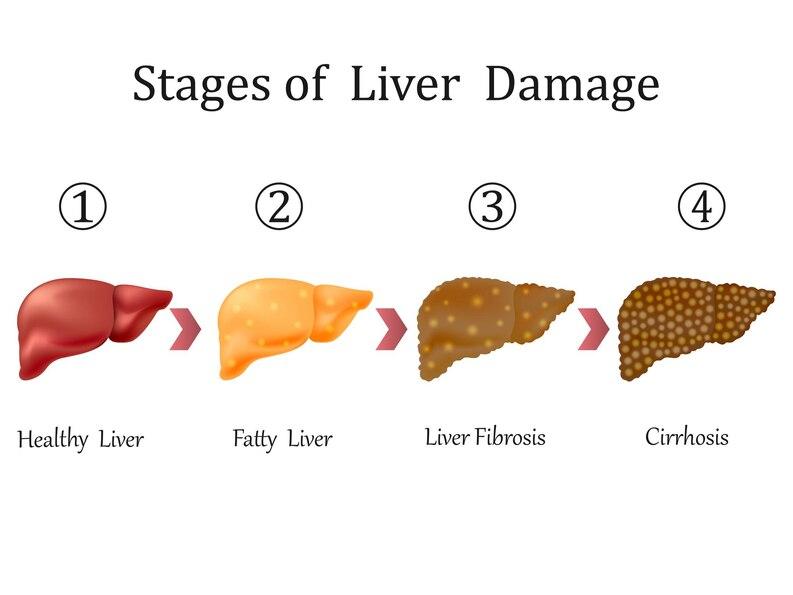Fatty Liver Disease: What You Need to Know from a Trusted Gastrosurgeon

Fatty liver disease is an increasingly common condition that affects millions of people worldwide. Though it may not show immediate symptoms, if left untreated, it can lead to severe complications. Understanding its causes, symptoms, diagnosis, and treatment options can help you take the right steps to maintain a healthy liver. In this guide, we’ll explore everything you need to know about fatty liver disease and the importance of consulting a specialist, such as the best gastroenterologist in Surat, for proper diagnosis and care.
What is Fatty Liver Disease?
Fatty liver disease occurs when too much fat accumulates in the liver. While a small amount of fat in the liver is normal, excess fat (more than 5–10% of the liver's weight) can disrupt its ability to function properly. The condition is divided into two main types:
-
Non-Alcoholic Fatty Liver Disease (NAFLD): Commonly linked to lifestyle factors such as poor diet, obesity, and lack of exercise, NAFLD is not caused by alcohol consumption.
-
Alcoholic Fatty Liver Disease: This occurs due to excessive alcohol intake, which damages the liver over time.
Both forms can progress to more severe conditions like liver inflammation (steatohepatitis), fibrosis, or even cirrhosis.
Causes of Fatty Liver Disease
Fatty liver disease can develop due to various factors, including:
-
Obesity: Excess body weight increases fat deposits in the liver.
-
Type 2 Diabetes and Insulin Resistance: These conditions contribute to fat accumulation in the liver.
-
Unhealthy Diet: Diets high in saturated fats, sugar, and processed foods can lead to fatty liver.
-
Sedentary Lifestyle: Lack of physical activity contributes to weight gain and fat buildup.
-
Excess Alcohol Consumption: For alcoholic fatty liver disease, alcohol is the primary cause.
Certain genetic factors, medications, and medical conditions such as high cholesterol can also increase the risk of fatty liver disease.
Symptoms to Watch Out For
In many cases, fatty liver disease doesn’t cause noticeable symptoms, especially in the early stages. However, as the condition progresses, some people may experience:
-
Fatigue
-
Weakness
-
Unexplained weight loss
-
Abdominal discomfort or pain, especially in the upper right side
-
Jaundice (yellowing of the skin and eyes, in severe cases)
-
Swelling in the abdomen or legs (advanced stages)
It’s important to consult a gastroenterologist in Surat if you notice any of these symptoms, as early diagnosis is key to managing the condition effectively.
How is Fatty Liver Disease Diagnosed?
Diagnosing fatty liver disease typically involves:
-
Medical History and Physical Examination: Your doctor will ask about lifestyle habits, medical conditions, and family history to assess risk factors.
-
Blood Tests: Elevated liver enzyme levels can indicate liver inflammation.
-
Imaging Tests: Ultrasounds, CT scans, or MRIs help identify fat deposits in the liver.
-
Liver Biopsy: In some cases, a small sample of liver tissue is taken to assess inflammation or scarring.
Stages of Fatty Liver Disease
Fatty liver disease progresses through four stages:
-
Simple Fatty Liver (Steatosis): Fat builds up in the liver without causing significant damage.
-
Non-Alcoholic Steatohepatitis (NASH): Inflammation occurs, leading to liver damage.
-
Fibrosis: Scar tissue begins to form, but the liver can still function.
-
Cirrhosis: Extensive scarring permanently damages the liver, leading to potential liver failure.
Early intervention can prevent the progression to advanced stages.
Treatment Options for Fatty Liver Disease
Currently, there’s no specific medication approved for treating fatty liver disease. However, lifestyle changes and medical interventions can help manage and even reverse the condition.
Lifestyle Modifications
-
Healthy Diet: Focus on a diet rich in fruits, vegetables, lean protein, and whole grains. Limit saturated fats, sugars, and processed foods.
-
Regular Exercise: Aim for at least 30 minutes of moderate exercise, such as brisk walking, five times a week.
-
Weight Management: Losing even 5–10% of your body weight can significantly reduce fat in the liver.
-
Limit Alcohol: For alcoholic fatty liver disease, cutting down or eliminating alcohol is crucial.
Medical Treatments
-
Managing Underlying Conditions: Controlling diabetes, high cholesterol, and hypertension can help.
-
Medications: Although there’s no direct cure, doctors may prescribe medications to manage symptoms or related conditions.
-
Monitoring Progress: Regular check-ups with a gastroenterologist ensure your liver health is on track.
Preventing Fatty Liver Disease
Prevention is better than cure, and simple steps can reduce your risk of developing fatty liver disease:
-
Maintain a healthy weight through a balanced diet and exercise.
-
Avoid excessive alcohol consumption.
-
Manage chronic conditions such as diabetes and high cholesterol.
-
Stay active and avoid prolonged sedentary periods.
-
Have regular check-ups to monitor your liver health.
Why See a Specialist?
If you’re concerned about fatty liver disease or its symptoms, it’s essential to consult an experienced specialist. A trusted gastrosurgeon or gastroenterologist can provide personalized care and effective treatment plans tailored to your needs. Whether you’re seeking a diagnosis, preventive advice, or advanced treatment options, consulting the best gastroenterologist in Surat can make all the difference in your health journey.
Conclusion
Fatty liver disease is a manageable condition, especially when detected early. By understanding its causes, symptoms, and stages, you can take proactive steps toward better liver health. Simple lifestyle changes, regular monitoring, and expert care can significantly improve your outcomes.
Remember, your liver plays a vital role in your overall health. Taking care of it today ensures a healthier tomorrow. If you’re in Surat and need expert advice, seek guidance from a trusted gastroenterologist in Surat to embark on a path to better health.
- Art
- Causes
- Crafts
- Dance
- Drinks
- Film
- Fitness
- Food
- Games
- Gardening
- Health
- Home
- Literature
- Music
- Networking
- Other
- Party
- Religion
- Shopping
- Sports
- Theater
- Wellness
- IT, Cloud, Software and Technology


